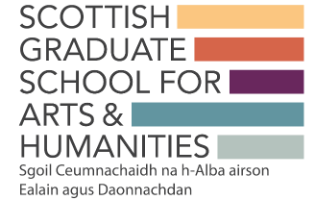Introduction to Editing Texts for Historians: Workshop & Panel Discussion
Monday 21st of June
2.30 - 4.30pm
Dr Jacqueline Rose, Dr Emma Macleod, Dr Colin Nicholson, Dr Steven Reid
Jacqueline Rose is a senior lecturer in History at the University of St Andrews and a member of the Editorial Board of the Clarendon Edition of the Works of John Locke. She is editing Edward Hyde, earl of Clarendon, Writings on Catholicism, for Oxford University Press.
Emma Macleod is a senior lecturer in History at the University of Stirling, who is co-editing The Wodrow-Kenrick Correspondence, 1750–1810 in four volumes for Oxford University Press.
Colin Nicholson is a leading expert on the history of the American Revolution and very experienced historical documentary editor. His work focuses on the origins of the Revolution in colonial Boston and the British-American Imperial Crisis of 1765-1776. He is currently editing the sixth and final volume of the Papers of Francis Bernard and recently co-authored a book on the pre-Revolutionary politics and friendship of John Adams.
Steven Reid is a senior lecturer in Scottish History at the University of Glasgow and lead editor of the ‘Bridging the Continental Divide’ project, an online critical edition and translation of the Delitae Poetarum Scotorum (1637) (www.dps.gla.ac.uk), partially revised and published as Corona Borealis: Scottish Neo-Latin Poets on King James VI and his Reign, 1566–1603 (ASLS, 2020).
About this Session
Understanding textual editing is vital for historians, whether they be editors themselves, users of editions, or both. The discipline of editing requires an awareness of how sources were produced and archived, close analysis and in-depth understanding of their content, and an alertness to what is gained and lost in the process of producing editions (of various sorts). This session will prompt participants to consider what editing a piece of text involves and provide some case studies of experiences with different types of editions (including team-produced multi-volume works and digital editions). Alongside asking why historians edit texts, it will explore the ways in which a better understanding of the editing process can enhance researchers’ awareness of the source material they encounter, and how editing skills can be deployed in future post-doctoral careers.
Learning Outcomes
By the end of this session, participants will have gained understanding of some of the core considerations involved in editing a historical text have developed critical awareness of what is gained and lost in the editing process, different types of editions, and which can be used for what purposes. They will also have enhanced awareness of research-related and transferable skills editing involves, such as precision, consistency, data management, teamwork, and digital skills.
Who might be interested?
Historians are the primary target audience, but those from other disciplines (e.g. classics, literary studies) who use editions of historical texts, or who are interested in how historians edit texts or general questions of editorial practice across disciplines, may be interested.
Click Here to Register (Please note that places are limited and will be allocated on a first come first served basis)
First published: 25 May 2021



